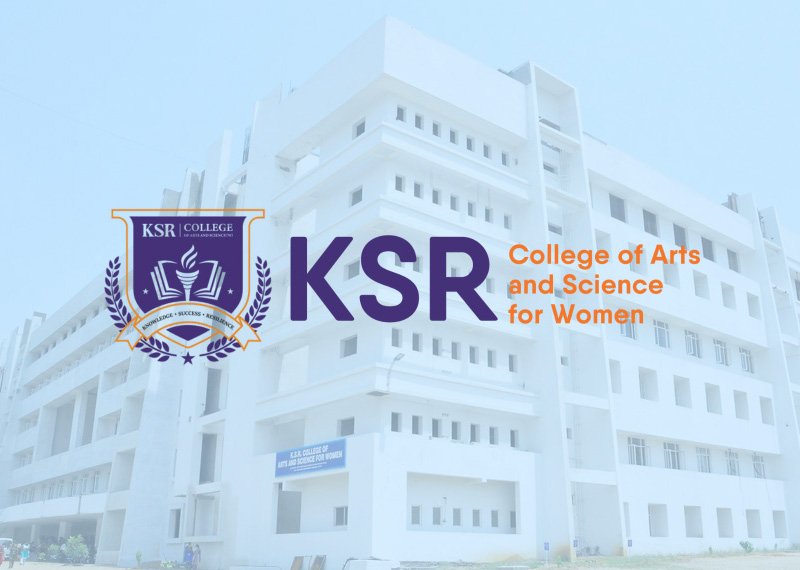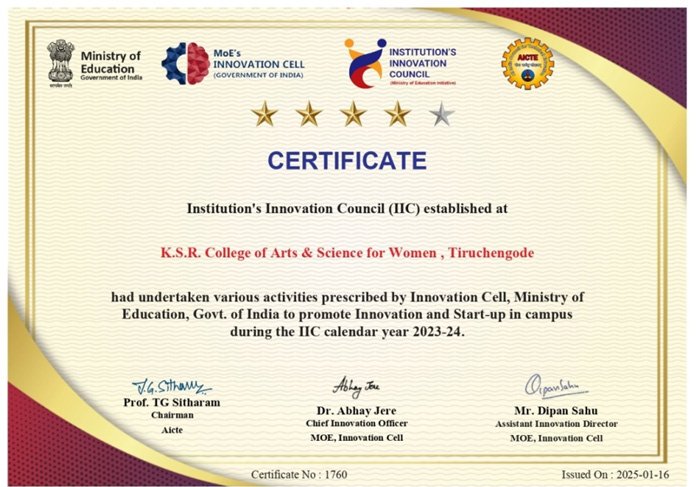MoE
About IQAC
The Internal Quality Assurance Cell (IQAC) is integral to the college’s quality management framework, dedicated to sustaining and advancing academic standards. Comprising faculty members, administrators, and key stakeholders, the IQAC collaboratively drives ongoing enhancement through comprehensive self-evaluation, feedback collection, and strategic planning. By monitoring and assessing various institutional functions—including teaching, research, infrastructure, and student services—the IQAC fosters a culture of continuous quality improvement and innovation. This ensures the college achieves its educational goals while addressing the expectations and needs of its community.
- To deliver meaningful and up-to-date knowledge through learner-centered teaching approaches.
- To prioritize education that upholds strong moral and ethical values.
- To cultivate job-ready skills and administrative competencies among students.
- To safeguard ethical principles and promote the rich cultural heritage of the nation.
- To develop and implement a robust framework for quality assurance and sustenance.
- To promote learner-centric education, innovative teaching practices, and effective assessment methods.
- To facilitate faculty development and administrative efficiency through regular training and feedback mechanisms.
- To encourage research, community engagement, and industry collaboration.
- To institutionalize best practices and uphold academic and ethical standards across all functions.
- IQAC Coordinator
Mr. S. Arun Joe Babulo – Director and Head

NIRF
Our curriculum is designed to introduce students to the fundamentals of computing, coding, and digital literacy in a structured and engaging way.
Through hands-on activities, project-based learning, and interactive tools, students explore topics like algorithms, programming languages, computer hardware, software, networking, and cybersecurity. We emphasize logical thinking, creativity, and responsible digital behavior — preparing students for a tech-driven world.
- Age-appropriate curriculum aligned with national standards
- Exposure to coding languages such as Scratch, HTML, and Python
- Focus on digital safety and responsible tech use
- Opportunities for tech clubs, competitions, and projects
IIC
The Ministry of Education (MoE), Government of India, has set up the MoE's Innovation Cell (MIC) to promote a strong culture of innovation within Higher Education Institutions (HEIs).The main aim of MIC is to inspire, support, and guide students to explore new ideas and convert them into working prototypes during their formative years. To achieve this, MIC has launched the concept of Institution’s Innovation Council (IIC) in selected HEIs. These IICs create a network that encourages innovation and entrepreneurship through various activities, thereby building a vibrant innovation ecosystem on campuses.
As of November 2018, over 2200 institutions have established their own IICs (IC201912210).
- To build a dynamic local innovation ecosystem by establishing start-up support mechanisms within HEIs, preparing institutions for the Atal Ranking of Institutions on Innovation Achievements (ARIIA) framework, setting up functional systems for scouting and pre-incubating innovative ideas, and enhancing the cognitive abilities of technology students.
- To build a strong network of IICs that fosters innovation within institutions through diverse initiatives, creating a sustainable innovation-driven ecosystem across campuses.
- Build a dynamic local innovation ecosystem.
- Establish start-up support systems within HEIs.
- Prepare institutions for the framework.
- Create functional mechanisms for scouting and pre-incubating innovative ideas.
- Enhance the cognitive and creative abilities of students.
- Conduct innovation, intellectual property rights (IPR), and entrepreneurship-related activities as guided by MIC on a scheduled basis.
- Identify innovative projects, reward achievements, and share success stories.
- Organize workshops, seminars, and interactions with entrepreneurs, investors, and professionals, and build a strong mentor pool for student innovators.
- Collaborate and network with other institutions and national entrepreneurship development organizations.
- Create an innovation portal to showcase the institution’s innovative projects from faculty and students.
- Host Hackathon, idea competitions, and mini-challenges in partnership with industry.
- Develop a supportive ecosystem for start-ups and pre-incubation of ideas.
- Foster students’ problem-solving, critical thinking, and innovation skills.

- PRESIDENT
Mr. S. ARUN JOE BABULO – Head, Department of BCA - VICE PRESIDENT
Mr. K. BABU – Head, Department of Physics - CONVENER
Mrs. S.SANGEETHA - Assistant Professor, Department of Computer Science - STARTUP ACITIVITY COORDINATOR
Ms. S. V. HARINI - Assistant Professor, Department of Chemistry - SOCIAL MEDIA COORDINATOR
Ms. K. PAVITHRA - Assistant Professor, Department of English - INTERNSHIP ACTIVITY COORDINATOR
Ms. A.M.K. TAMILANCHALI, Assistant Professor, Department of N & D - INNOVATION ACTIVITY COORDINATOR
Mrs. S. SUDHAA - Assistant Professor, Department of BCA - IPR ACTIVITY COORDINATOR
Mrs. R. JAMUNARANI- Assistant Professor, Department of Computer Science - EDC CELL
Mrs. E. MYNAVATHI- Assistant Professor, Department of Mathematics